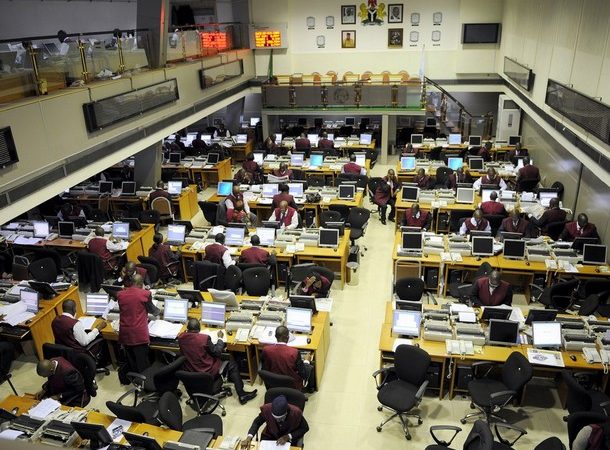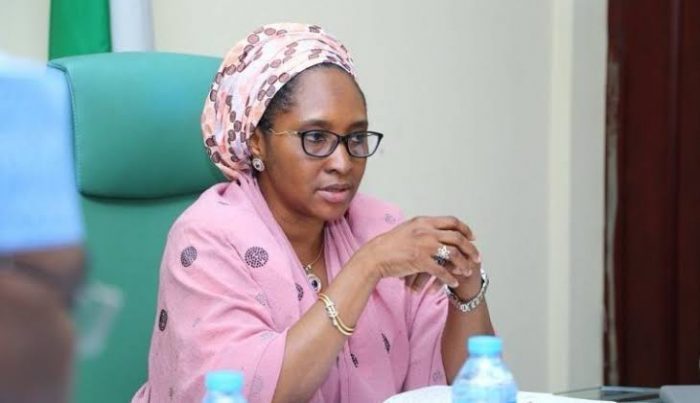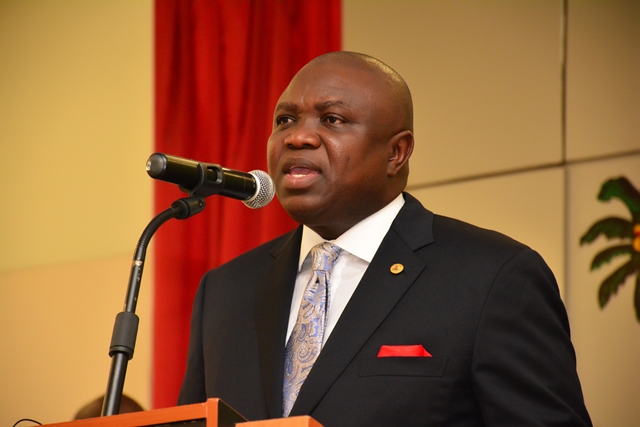Article written by Anthony Eferhirhie Abugu
It is not just a mean saying that places differ and that it’s their differential qualities that make the live or stagnation of these places. In recent times, mostly during the great Ahmed Bola Asiwaju Tinubu government of Lagos state (from 2001-2007), the then Ibeju-lekki region was looked upon as a mere zoo. A jungle for ritualists.
Hoodlums courts and the capital of rascals. At this very time, places like Ikoyi and Ikeja where the abode of affluence and the only place the sun of industrialization and economic boom shone on. Ikeja at the other hand was the business hotspot. As a virtue of being the capital city, everybody set their bearings towards the drilling of the oil in the capital city.
The Ikoyi and Ikeja boom was a phenomenon at that time. Even foreign investors graced the greenness of these two cities. Then, if you are rich and you are not in Ikoyi or Ikeja then your riches are not complete. All multinational companies in Nigeria have one corner or the other they called their office either at Ikoyi or Ikeja. There were both the New York, California, Moscow, Tokyo and Berlin’s of West African then. Yet, where are they standing today in the midst of the great industrialization and economic boom that is presently hitting Lagos from all corners?
There has been a lot of argument as towards where Ibeju-lekki starts from and ends. The local governments and the Local Council Development Areas, how these LGAs’ and LCDA’s make up this fertile than Ikoyi and Ikeja soil. My aim is not to drive you through these arguments or establish a starting and ending boundaries that make up the Ibeju-lekki axis or local government area but to open
your eyes and elongate your mind to the investment opportunities mostly in the real estate industries in the ibeju-lekki area.
Take it or leave it, Ibeju-lekki is the new king of Lagos. A new Prince is now born there. His name is the latest and newest hallmark of investment in West Africa. We must not dare to compare Ikoyi, Ikeja and Ibeju-lekki (stretching from Eti-Osa Local government to Epe Local government). It is no more a new fact that the glorious days of the two most famous cities in West Africa – Ikoyi and Ikeja had long
gone. Yet, we all must not forget the splendour, opulence and financial opportunities both cities created for the average man in West Africa.
We cannot forget and we can never forget. The impact of the Ikoyi and Ikeja economic boom will ever remain engrained in our heart and the effect is what Lagos state stands on today as the greatest, most economically viable and buoyant state in Nigeria. Richer than
some counties in the world.
Also, discussing Ibeju-lekki as the hallmark of investors in West Africa, we have to understand why?. First, in terms of city planning and structural regulations, Ibeju-lekki comes first. The mistakes the then Lagos state government and the ones after it made during the establishment of Ikoyi and Ikeja are now corrected in Ibeju-lekki. Every communities and streets, hubs and corners has a designated layout as set out by the government. No more Ikoyi and Ikeja business or structural lifestyle as usual. No! There is a developed and well established pattern towards building and construction, road network, drainage and other public amenities that are well founded, implemented at the Ibeju-lekki axis compare to Ikoyi and Ikeja.
Secondly, there’s a vast area of land that is open for structural development which has led to the most outstanding structural innovations in the area than both Ikoyi and Ikeja combine together. Both the rich, middle and poor-class can buy landed properties at Ibeju-lekki but not at Ikoyi and Ikeja. The reason is, landed properties at Ikoyi and Ikeja is at a very low ebb in terms of availability and proper sitting
compare to Ibeju-lekki.
Also, landed property both empty and develop structures covers the three categories of class in the society in terms of price, cost of construction, maintenance and cost of documentation. While at the very heart of the Ibeju-Lekki axis such as Ajah, Badore, Lekki Peninsula, Ikota, Admiralty, Sangotedo, Eleko, Bogije and environs a plot of land (60×120 – 600sqm3) ranges from hundreds of millions to three hundred thousand naira compare to that of Ikoyi and Ikeja. There is always a price for every class of the society for landed property at the Ibeju-Leki axis but at Ikoyi and Ikeja the reverse is the case.
We have seen and heard of 300sqm3 of land sold for fifty million naira at Ikoyi and five hundred million naira at Ikeja which only the super-rich can afford. At Ibeju-lekki, the price of landed properties floats in the air. It’s not something that is cut out for the super-rich alone. No! Everybody can be a landlord at the Ibeju-lekki axis because no matter your financial status, there is always a property that fits into
your financial status.
This also pinpoints the fact why the region has the most developed housing units, a number of real estates (fenced and serviced) and has even gone to the apex of attracting foreign real estate investors and developers in the region such as Bricks and Brains.
However, one of the major reason that has to lead to the Ibeju-lekki boom is the sitting of the Lekki Free Trade zone, Lekki Deep Seaport and the Dangote Refinery at one location in one axis. Just 5- minute drive from each other. For users that are conversant with google map, the Lekki Free Trade zone is already mapped into google maps. What this means is that every business oriented individual in the world now knows about this economic hotspot.
Apart from the real estate companies that has dominated the axis, foreign companies are already setting their branch offices in the region. While the Dangote refinery, Deep seaport and the Lekki free trade might remain the major investment and economic hubs in the region which has continue to attracts investors from every part of the world and corporate organizations. They are also some economic
industrialize tone to the area such as the Dangote Petrochemical plant, Dangote Private Jetty. Also, the industrialize areas where you have the DANO milk plant which is already functional since two years, Power Oil (owned by Indomie) also fully functional, Kellog (Cornflakes manufacturer) and others Asian companies that are already setting their facilities in the area with construction, technology
innovations being deployed to the region for the economic boom. Also, it will be a serious abysmal not to mention the different first-class beach resorts in the area like the La Campagne Tropicana Beach Resort and others.
The next question you might want to ask is, is this hot economic hotspot not for the rich and the influential alone? My answer to that question is No! The investment opportunities in the region is not tailored towards favouring one particular class of the society. With proper due diligence and good timely information at your disposal, there’s an investment opportunity that fits into your financial status
quo. This is where your legal team and property scooters or realtors should do their background check very well. There are landed properties for every classes of the society in the area. Just do your background check very well before putting your money on the table if not, it’s better late than I am sorry.
The second question you might want to ask is, how regulated is the area by the government? Does the government have a serious oversight over the area or is one of those places in Lagos where Omo-nile calls the shots here and there? My answer to that question is, the Ibeju-Lekki axis starting from Eti-Osa local government is highly regulated by the Lagos state government. First, the Lagos state government has put lots of measure in place to curb the legal illegality of Omo-nile (land grabbers) and other fraudulent groups or gangs whose business is to sell people’s land to other people and takes people’s land by force in the name of ratification. By now, you should know that ratification can only be done with the government and not any other person.
The third question you might be thinking now is, what does it take to be an investor in this hot economic zone? The truth be told, it will only take you and yourself alone (Your determination) to be an investor in the Ibeju-Lekki axis is the key and nothing more. You might say what! Yeah! That is, it! Surprise? Money is not everything but determination is worth everything. Even if you have fifty million naira in your account right now, it is your self-determination that will determine if that money grows or diminishes. What truly makes people successful, great and wealthy is what flows out of them and not what flows around them. Your inner flow matters a lot. You must be determined to be a key investor in the Ibeju-Lekki area and when your determination is in place, everything other things will fall in
place including the required funds needed to invest.
Conclusively, they are many platforms you can invest in the Ibeju-Lekki economic boom but the most outstanding of them all which this article has been addressing from start is the real estate platform. Like every true investor, you can always start small and grow your investment into a real estate conglomerate.
Also, it’s important you understand that when investing in the Ibeju-Lekki real estate boom, you can do this directly with the landowners (villagers) or with established real estate companies in the area. Now, they both have their pros and cons but you will have better control and oversight over your investment with a real estate company because of the following:
1. A real estate company is an established business entity that has corporate values and responsibility, thus liable to be sue at the court of law any time any day.
2. A real estate company has other land-moving and technical-know-how which the villagers do not have. All they just want to do is to sell and move on with their life and nothing more.
3. A real estate company has an oversight value growth and appreciation, policies and amenities deploy to that area to add value to the landed property and open it up for further development.
Lastly, you must understand that not all real estate company can meet the above three pre-requisites.They are lots of Kangaroo, Sell and Run, Sell and On-Your-Own real estate companies in the area as well. You must avoid them if not what you think it’s an investment will only end up as a shamble and liabilities before your very eyes. This is where the most viable and sophisticated real estate company
‘De Castle Gardens Limited’ comes in. De Castle Gardens Limited is a real estate developer and a major player in the region. Investing with them is standing in the midst of the boom of the Ibeju-Lekki business and economic honey spot. They have one of the finest property in the area that is just five minutes’ drive from Dangote refinery and directly opposite the golf course and Dangote Jetty as well
with the title ‘Gazette’.
They have both Commercial and Residential plots in a well-designed and approved government layout. Visit their website at www.decastlegardens.com. Investing with them makes your investment secure, with added value and appreciation rate. Welcome on board to the Ibeju-lekki economic boom!




